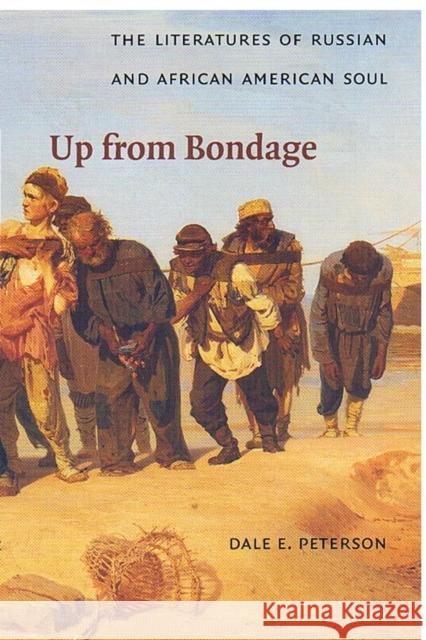Up from Bondage: The Literatures of Russian and African American Soul » książka
Up from Bondage: The Literatures of Russian and African American Soul
ISBN-13: 9780822325260 / Angielski / Twarda / 2000 / 264 str.
Up from Bondage: The Literatures of Russian and African American Soul
ISBN-13: 9780822325260 / Angielski / Twarda / 2000 / 264 str.
(netto: 434,00 VAT: 5%)
Najniższa cena z 30 dni: 434,51
ok. 30 dni roboczych
Bez gwarancji dostawy przed świętami
Darmowa dostawa!
During the nineteenth century, literate Russians and educated American blacks encountered a dominant Western narrative of world civilization that seemed to ignore the histories of Slavs and African Americans. In response, generations of Russian and black American intellectuals have asserted eloquent counterclaims for the cultural significance of a collective national "soul" veiled from prejudiced Western eyes. "Up from Bondage" is the first study to parallel the evolution of Russian and African American cultural nationalism in literary works and philosophical writings.
Illuminating a remarkably widespread cross-pollination between the two cultural and intellectual traditions, Dale E. Peterson frames much of his argument around W. E. B. DuBois's concept of "double-consciousness," wherein members of an oppressed section of society view themselves simultaneously through their own self-awareness and through the internalized standards of the dominant culture. He shows how the writings of Dostoevsky, Hurston, Chesnutt, Turgenev, Ellison, Wright, Gorky, and Naylor--texts that enacted and described this sense of double awareness--were used both to perform and to contest the established genres of Western literacy. Woven through Peterson's textual analyses is his consideration of cultural hybridism and its effects: The writers he examines find multiple ways to testify to and challenge the symptoms of postcolonial trauma. After discussing the strong and significant affinity expressed by contemporary African American cultural theorists for the dialogic thought of Russian linguist Mikhail Bakhtin, Peterson argues that a fuller appreciation of the historic connection between the two cultures will enrich the complicated meanings of being black or Russian in a world that has traditionally avoided acknowledging pluralistic standards of civilization and cultural excellence.
This investigation of comparable moments in the development of Russian and African American ethnic self-consciousness will be valuable to students and scholars of comparative literature, philosophy, cultural theory, ethnicity, linguistics, and postcolonialism, in addition to Slavic and African American studies.











